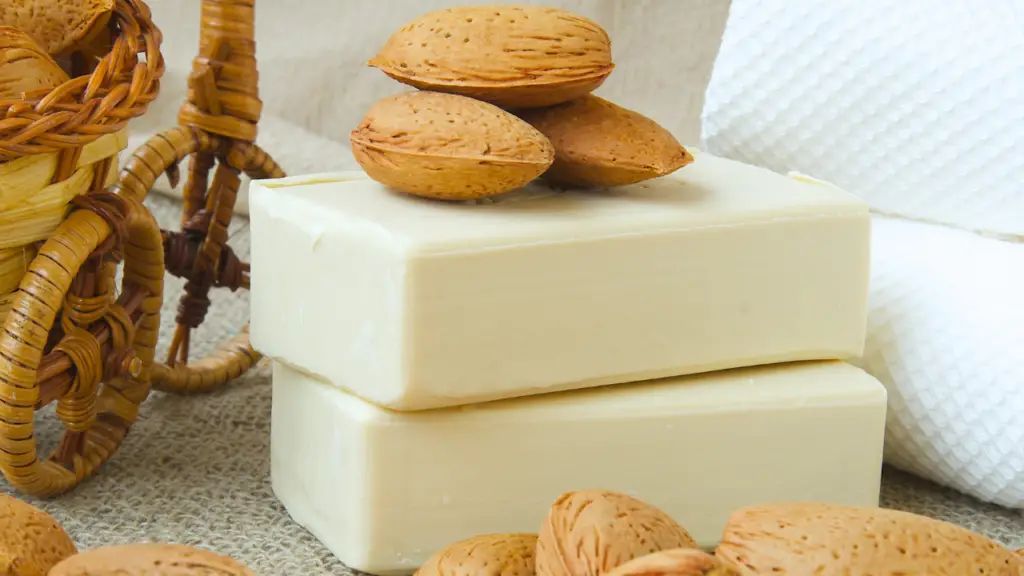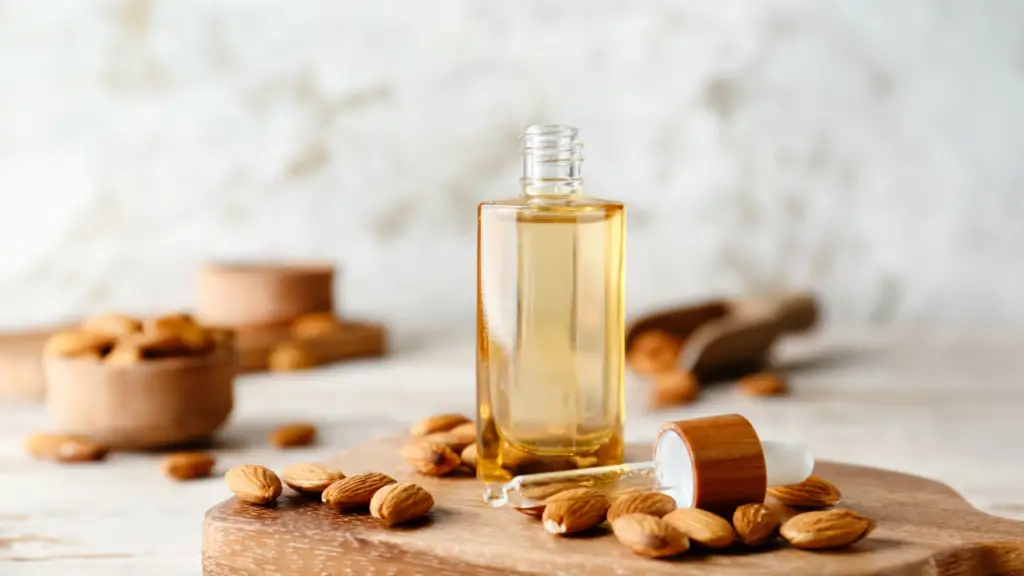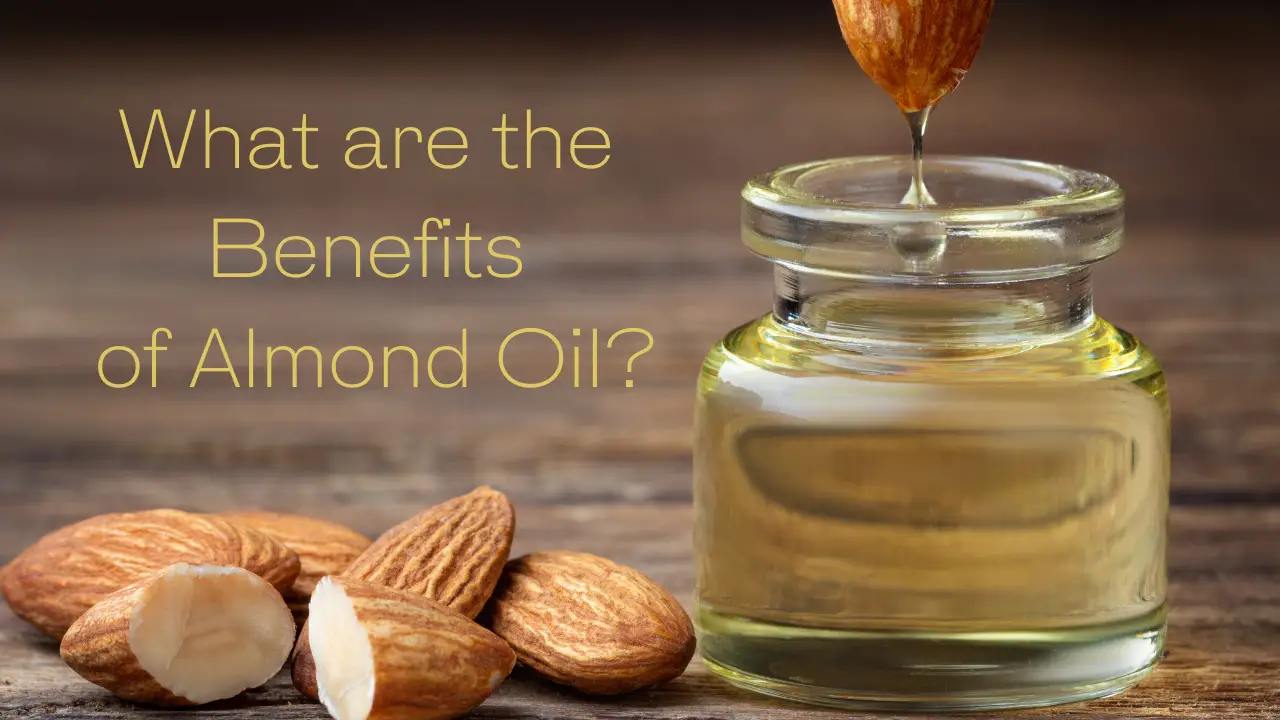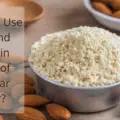We're moving towards a world more focused on organic ingredients than in the last few years. Our ancestors were all about natural ingredients, but with the rise in manufactured products, we slowly deviated from that.
It's time to shift back to nature, starting with almond oil! If you have yet to experience everything almond oil can do for your body, you should get started. But first, here's an all-you-need-to-know guide on almond oil and its benefits, including tips!
What is Almond Oil?
From the seeds of a fruit tree, almond has been used for centuries for numerous purposes. One of the many uses of this nutritional powerhouse is the creation of almond oil.

As the name suggests, almond oil is derived from almonds. Other than cooking, it has also been used by a wide range of industries, namely skincare and cosmetics.
Because of the difference in nature of extraction, almond oil is further divided into categories:
Sweet vs. Bitter Almond Oil:
When you think about almond oil for practical usage, that's the sweet almond oil. It's a fixed carrier oil, meaning it's the base ingredient mixed into others to form the end product. Moreover, sweet is the type with the nutritional benefits of almonds.
Meanwhile, if the word almond oil brings the spectacular scent of almonds to your imagination, you're thinking of bitter. Bitter almond oil evaporates and is primarily used as an essential oil in face wash and soap products.

In the world of cooking, you're using sweet almond oil. Unless you're planning to add almond essence to your baked desserts, that product utilizes bitter almond oil for its scent.
Refined vs. Unrefined Almond Oil:
In the case of refined vs. unrefined, there are few technicalities to understand.
In simple words, refined almond oil goes through a lot of processing. This oil is especially beneficial as a cooking oil because of its high-heat properties.

Unrefined almond oil is more organic and has more nutritional elements. However, since it goes through minimal or no processing, unrefined almond oil, naturally, becomes toxic at high temperatures. Thus, this is not the type you should be buying for cooking purposes.
7 Health Benefits of Almond Oil
Vitamins, minerals, omega-3, and healthy fats; that's the bundle of nutritional components present in almond oil. You can read the nutritional value even on the back of a bottle of almond oil.
What you'd want to know is what can these do for your body and health? Let's dive into it.
Fulfill Vitamin E Intake:
A healthy body needs various vitamins to function. One of these vitamins includes Vitamin E, otherwise known as the antioxidant vitamin. Vitamin E is fat-soluble, meaning you can only get them from foods that contain fats.
Those fat-soluble vitamins are stored in the liver or the fatty tissues. The antioxidant properties enable the body to fight off free radicals that cause cancer. With Vitamin E in your diet, you're also reducing the risk of heart diseases and chronic illnesses. 15 mg is the daily recommended amount of Vitamin E, and a tablespoon of almond oil fulfills 27%.
Strengthened Heart Health:
We've gotten used to the idea that anything that has too many fats is what makes your heart health go downhill. Fats come in different types. While trans and saturated fats are bad for your heart, monosaturated fats are beneficial.

They decrease the production of LDL (bad cholesterol) and increase HDL (good cholesterol). Along with almond oil's antioxidant and anti-inflammatory properties, almond oil is one of the best things for optimized heart health.
Regulate Blood Sugar Level:
Diabetes is a condition where the body reduces or stops insulin production, which leads to high blood sugar levels. High blood sugar levels can disrupt the body's functions and cause numerous symptoms. Monosaturated fats like almond oil stabilize blood sugar levels in diabetes patients by bringing them down.
Maintain Weight Control:
First, almond oil contains increased calories and fats. If that's the case, how would it help in weight loss? Almond oil keeps you full for prolonged durations and provides good energy for your body.
Don't expect to lose five pounds in a week. However, switch to almond oil as a finishing oil on your salad instead of store-bought brands, and you might notice a difference.
Work Towards Healthy Skin:
Almond oil is a natural moisturizing ingredient for starters. Besides moisture retention, it has the properties that repair the skin's outermost layers. For this reason, people with dry skin conditions like eczema and psoriasis may benefit from using almond oil.

Another great tip is that almond oil can be used as an alternative to sunscreen when you're out of it. It prevents sun damage and decreases the onset of premature aging caused by sun damage.
Increase Hair Health and Appearance:
Taking on the moisture-locking properties of almond oil for skin does wonders for hair. Over time, the gaps between hair strands get damaged. In return, this leads to weaker and dull hair.
Almond oil fills in these gaps, strengthening hair at the cellular level and providing sheen. Plus, the vitamins in almond oil are essential for healthy hair. So, it's safe to say your hair is getting the best of all worlds with almond oil!
Reduce Chances of Inflammation:
The damage from inflammation in the body stretches across all levels, from cellular to external skin layers. We talked about the benefits of almond oil's anti-inflammatory properties for heart health.
On to skin health, acne breakouts are most commonly a result of the body's response to toxins. The immune system's reaction then results in inflammation, which causes breakouts. Almond oil contains the goodness that fights off inflammation and can help reduce acne.
When to Avoid Using Almond Oil
Like every other ingredient, not everyone should use almond oil.
Skin conditions like eczema can significantly increase the chances of allergies, so take due precautions. Some studies advise against using almond oil daily for pregnant women. Although, the findings are limited and more research is needed on this topic.

The one case where you don't have any options regarding almond oil usage is for those with a nut allergy. Neither can you consume it nor apply it topically. Using almond oil while being allergic can become detrimental to the individual's health.
Symptoms include skin rashes, hives, redness, breathing problems, stuffy or runny nose, tingling sensation, and gastrointestinal issues. If you have recently started noticing these symptoms within one hour of using almond oil, consult a doctor immediately.
Suppose you don't have sweet almond oil to dash a tablespoon on your salad and think of using bitter, don't! Adding bitter almond oil to your recipes or dish is something you need to refrain from. It is not the type you should be consuming as is in your food.
It contains a toxic material called hydrogen cyanide, the consumption of which can lead to cyanide poisoning. Cyanide poisoning does not just cause severe symptoms but can also become life-threatening.
How to Use Almond Oil
In light of the multitude of almond oil's goodness, there are tons of ways you can use this ingredient. Whether it's for skin, hair, or cooking, we've gathered a bunch of techniques to add almond oil to your routine.
Almond Oil for Skin

- Moisturize Your Skin: Suffering from dry, itchy skin? When skincare products are no longer working, it's time to switch to the traditional methods. Almond oil might be the solution to your problems. Add 2-3 drops of almond oil to your palm and gently massage it to your face. Start making it a part of your nighttime routine before bed, and you'll gradually start seeing softer skin.
- Remove Makeup: Makeup removers can strip your skin's natural oils, sometimes causing more damage than good. Again, massage it to your face and gently remove the makeup. Or, pour a tiny amount on a cotton pad. Wash your face afterward to ensure all of the makeup is removed.
- Keep Your Lips Soft: Almond oil and kissable lips are a combination that works exceptionally together. This hack will help heal chapped lips and make them irresistibly soft. Apply almond oil to your lips, massage it in, and leave overnight.
Almond Oil for Hair

- Massage it In: Take a small of almond oil and massage it to your scalp using your fingertips. Don't forget to apply it to the rest of your hair, especially the ends. Keep it anywhere between 10-30 minutes before showering. You can leave the oil in your hair overnight and rinse it off in the morning for the best results.
- Make DIY Hair Masks: Who needs hair product worth hundreds of bucks when you can make DIY hair masks. They're just as good, if not better, with all the richness of natural ingredients. Add almond oil to yogurt, honey, and lemon in a bowl and apply it to your hair. Due to its moisture-locking properties, almond oil is exceptional as a conditioner, too! Mix coconut oil, almond oil, and avocado or shea butter for this technique.
- Mix It with Other Oils: Almond oil has a bundle of benefits for your hair. But, if you want to go the extra mile for shiny, silky, long, and healthy hair, mix it with other oils. You can make an oil mixture of coconut oil, almond oil, and olive oil. Adding a tablespoon or so of castor oil and a few drops of essential oil is excellent for hair.
Almond Oil in Your Diet

- Refined Oil: Use refined oil for recipes that need to be cooked at high temperatures. Add 2-3 tablespoons of refined almond oil for frying or grilling proteins or vegetables.
- Unrefined Oil: The all-nutritious, unrefined version of almond oil is meant to be in your dishes. For recipes that don't require cooking, like salads, drizzle a tablespoon or two of almond oil on top. You'll be adding in the goodness and a mild, delicious nutty flavor.
- Baking Recipes: For high-heat baked goods, refined oil is the way to go. On the other hand, you can use almond oil if you're baking your cookies or cakes at low temperatures. Once again, the nutty flavor is another bonus point that'll bring a whole new dimension to the flavors.
Which Almond Oil is the Best?
You might want to get a bottle now that you know the many benefits of using almond oil. As we discussed previously, there are two main types of almond oil. So, your question may be, which one should you get?
For Skin and Hair:
When it comes to skin and hair, these body parts crave nutrition. There's not much use in applying almond oil to these areas without the nutritional plus points. For this purpose, sweet almond oil should be your go-to. Cosmetics brands often use bitter almond oil instead, primarily for the scent.
As far as practical purposes go, sweet almond oil is your skin and hair's best friend. Also, try to get organic, unrefined almond oil to retain the nutritional components as much as possible.
For Cooking:
You can't escape the decades-old debate on which almond oil you should use for cooking. Although, experts have recently come to a consensus. Once again, unrefined almond oils win the race but only when you're not cooking the meal on heat.
The low heating point in virgin unrefined oil can make it toxic when cooked at a high temperature. Refined almond oil is better for fried, grilled, and baking recipes but slightly less nutritious. Use it for dishes like dressings for salads, proteins, and vegetables.
How to Prepare Almond Oil
Some of us like to do things the old-fashioned way. Instead of spending too much on almond oil every other day for regular use, why not make your own? It's cheaper, convenient, and assures that the oil in your hands is organic with zero processing.

Here's what you need to make home-made almond oil:
Ingredients:
- 2 cups raw almonds
- Olive oil
- Electric blender
Instructions:
- Add the almonds to the blender.
- Start grinding slowly at first, and then increase the speed.
- Keep grinding till the almonds form a ball-like shape or a creamy paste. Scrape the sides of the blender after every round.
- Add olive oil. Start with a tablespoon or two and gradually add more till you reach your desired consistency. Keep grinding in between.
- Pour the mixture into a jar.
The mixture needs to sit for about two weeks to get only the purest form of almond oil. The particles and oil will become by then separate. You can use a filter to ensure none of the solid particles go through.
Don't have two weeks to wait? That's not a problem either. You can use the mixture right after making it.
Final Words
You don't want to miss out on the many benefits of almond oil for a healthy body. Simply add them to your daily skin, hair, and cooking routine now that you know them.
Make sure you're choosing the correct type according to the usage. Additionally, use organic almond oil to reap the most benefits wherever possible.
If you know you have any health conditions or are on long-term medication, consult a medical expert before using it daily.
The owner of this website, HealthYeahLife.com, participates in the Amazon Services LLC Associates Program, an affiliate advertising program designed to provide a means for sites to earn advertising fees by advertising and linking HealthYeahLife.com Review to Amazon properties including, but not limited to, amazon.com.





